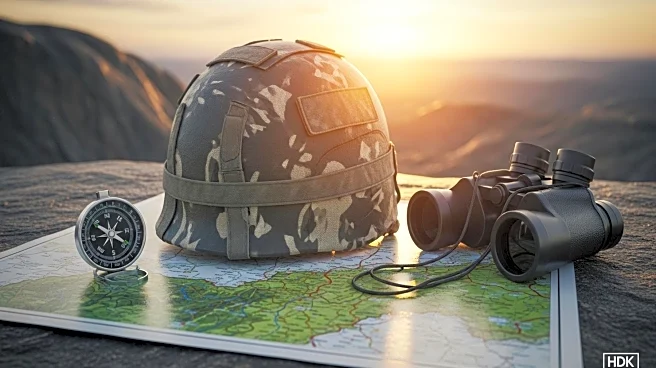What's Happening?
Randeep Hooda has acquired the official movie rights to 'Operation Khukri: The Untold Story of the Indian Army’s Bravest Peacekeeping Mission Abroad' by Major General Rajpal Punia and Damini Punia. The film will dramatize the real-life events from 2000 when 233 Indian soldiers were held hostage by rebel forces in Sierra Leone, West Africa. Hooda will portray Major General Raj Pal Punia, who was a young Company Commander of the 14th Mechanised Infantry during the operation. The film aims to bring to screen the tense standoff and the subsequent high-risk rescue mission that followed, highlighting the bravery and strategic prowess of the Indian Army.
Why It's Important?
The acquisition of 'Operation Khukri' rights by Randeep Hooda is significant as it brings attention to a lesser-known but critical peacekeeping mission undertaken by the Indian Army. This film has the potential to educate audiences about the complexities and challenges faced by military personnel in international operations. It also underscores the importance of peacekeeping missions and the role of the Indian Army in global security efforts. By portraying such a pivotal event, the film could enhance public understanding and appreciation of military operations and the sacrifices made by soldiers.
What's Next?
With the rights secured, production on 'Operation Khukri' is expected to move forward, potentially involving collaborations with military advisors to ensure authenticity in the portrayal of events. The film could attract interest from international audiences, given its focus on a global peacekeeping mission. As the project progresses, casting decisions and production timelines will be closely watched by industry stakeholders and fans of military dramas.
Beyond the Headlines
The film 'Operation Khukri' could spark discussions on the ethical and strategic dimensions of peacekeeping missions. It may also lead to increased interest in military history and the role of the Indian Army in international affairs. Additionally, the film could influence cultural perceptions of military operations and contribute to a broader understanding of the geopolitical landscape during the early 2000s.











